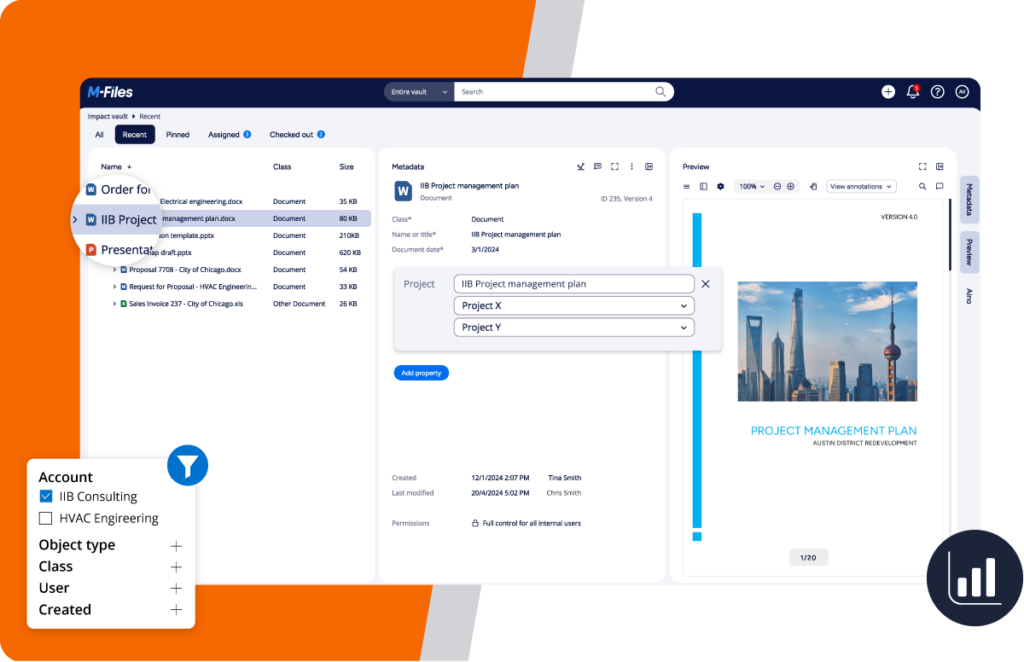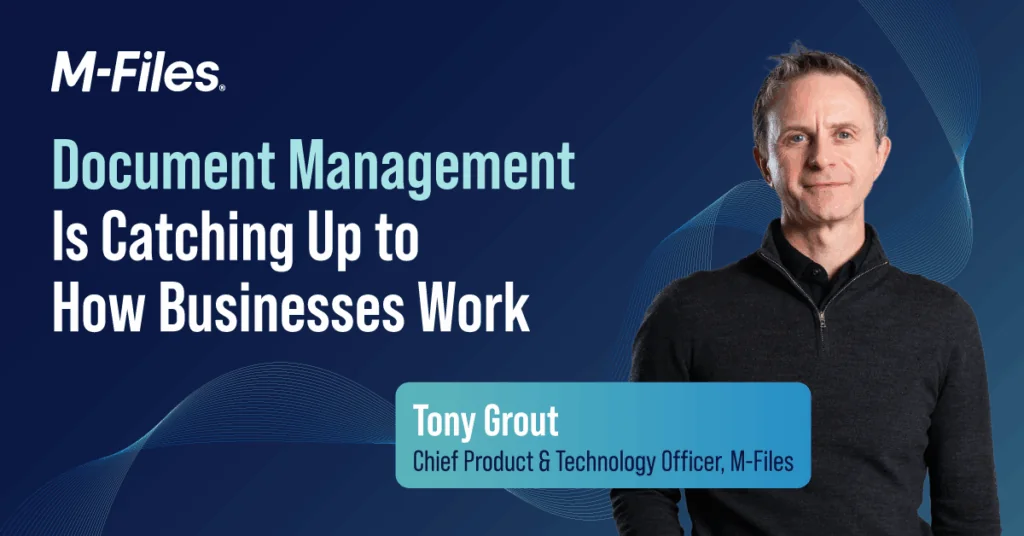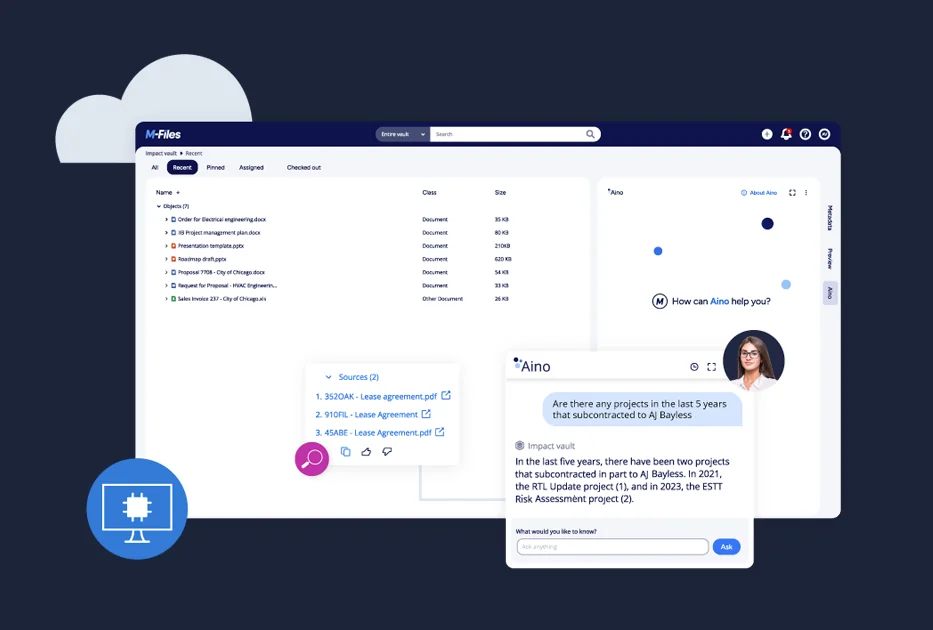Financial Services in Chaos? 5 Stats & The Information Management Cure

It is no secret that banks and insurance companies are caught in the middle of several converging disruptive forces. PricewaterhouseCoopers says in their article, “Top financial services industry issues”:
“Financial institutions are in a bind. Legacy systems, processes, and relationships make innovation extremely difficult, even as new technology ramps up user expectations and attracts new competitors. Many firms still struggle with making a digital transformation, even as their future growth may depend on it.”
5 Stats Exposing Information Management Chaos
Many of the disruptive forces facing financial institutions would be enough by themselves to create disruptive pressures; banks and insurance companies are facing all of them at once:
- Legacy information management systems built up over many years.
- The massive M&A activity that occurred in the wake of the 2008 crash — activity that created a huge integration and rationalization challenge between those legacy (and often incompatible) systems from different companies.
- Huge legacy investments in “repository-centric” content management, focused on where a document is stored rather than what it is.
- Rising regulatory requirements tied directly to how information is managed and by whom.
- New “FinTech” competitors (e.g., Amazon, Alibaba, WeChat, Apple, Google) seeking to cherry-pick particularly profitable business lines from the existing players — and are able to leapfrog legacy technologies to more modern approaches.
- A new generation of “digital native” banking and insurance customers with vastly different customer experience expectations than traditional customers.
Legacy Systems & Integration Challenges
A survey by AIIM of executives from 48 banks and insurance companies confirms this:
- 91% of respondents said, “Our information management strategy needs to be modernized to meet modern problems.”
- 93% said, “Digitizing and standardizing business inputs is one of the key bottlenecks for Digital Transformation.”
- 57% stated, “My organization is concerned that we could face serious disruption of our business model in the next 2 years.”
Content Silos Hinder Customer Experience
Randy Bean, CEO and managing partner of NewVantage Partners, described the dilemma this way in Forbes: “In his 1926 novel The Sun Also Rises, Hemingway creates an apt metaphor for the nature of innovative and disruptive change. When a character in the novel is asked ‘How did you go bankrupt?’ he replies, ‘Two ways, gradually, and then suddenly.’”
Unmanaged Documents Slow Down Productivity
So how should a besieged financial services executive approach these myriad challenges? Sometimes it’s best to start a long and complicated journey at the beginning.
Deloitte’s 2018 Banking Outlook points to the importance of maximizing the productivity and effectiveness of knowledge workers, and refocusing their efforts from rote and repetitive work to work that delivers greater value: “[B]anks will likely need to reorient existing workforces to be collaborative and inclusive, while providing them with more integrated employee experiences — from recruitment to retirement — to mirror the richer customer experience that the workforce is enabling.”

Intelligent Information Management: The Solution
Here are two data points from AIIM research to focus your thinking about this key starting point — the tools used on a day-to-day basis by knowledge workers.
On average, 58% of the unstructured content and information used in enterprise business systems (like ERP, HR, Finance, CRM, and Project Management) is stored WITHIN those enterprise systems (and thus unavailable to other processes) INSTEAD OF in a Content Management System.
Why this is important: Many legacy content management systems were designed around custom, large-volume, mission-critical processes. These systems did the job within this process, but they were not designed for easy integration with other core enterprise applications. The resulting silos of information tied up in single process, application-specific repositories now stand in the way of the efforts of banks and insurance companies to redefine their business processes around customer experiences.
Integration with Core Business Systems
A key requirement for any intelligent information management solution should be ease of integration into core line-of-business applications, delivered through content services that can be scaled to the needs of a particular process.
Automatic Metadata & Content Organization
Almost 50% of financial services executives describe their management of Microsoft Office docs (like Word and Excel and PowerPoint) as “chaotic” or “somewhat unmanaged.”
Why this is important: Legacy content management systems focused on somehow convincing knowledge workers to put their work into the “right” repository, and to also make sure they assigned the appropriate metadata along the way. The reality of work in the banking and insurance industry in the past decade — a story of consolidation and needing to get more done with less people — made this expectation totally unreasonable. As a result, a large portion of day-to-day business documents wound up unmanaged.
Empowering Knowledge Workers for Digital Transformation
In this environment, simply finding the right document when it was needed often seems impossible. Where was that file saved? Who edited it last? A more modern approach to managing business documents is to organize content based on what it is rather than where it is stored. And to do so in terms that make sense to knowledge workers in the normal course of their work, automatically assigns the metadata needed to create a framework for future AI and machine learning applications.
Digital transformation in financial services begins with making life simpler for knowledge workers who are increasingly overwhelmed by the rising tide of information chaos… and that means Intelligent Information Management.
Ready to conquer information chaos and accelerate your financial services digital transformation? Schedule a free demo or start your free trial today!









